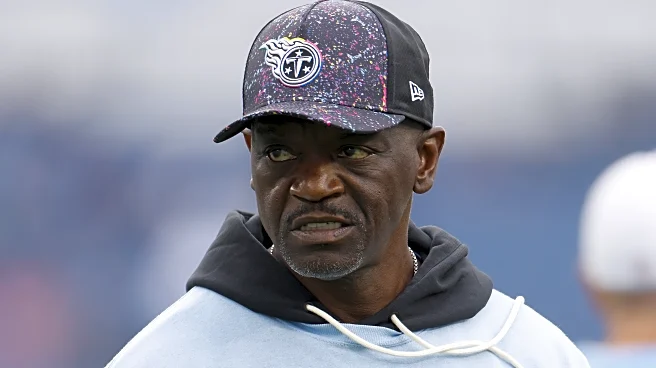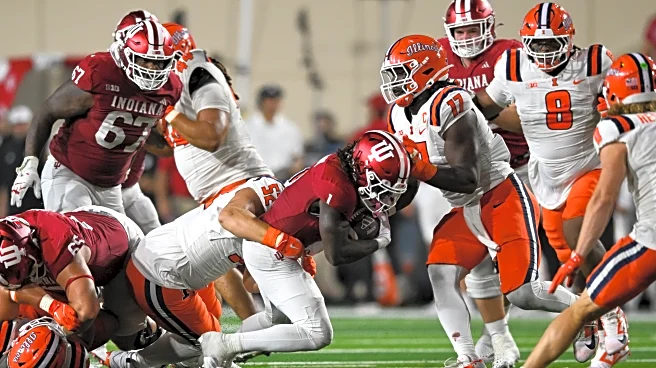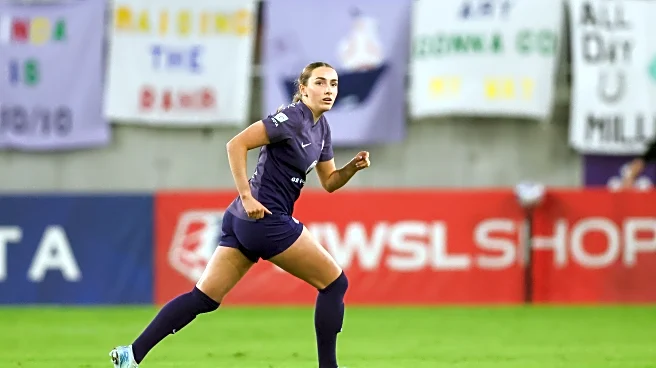What's Happening?
The NCAA has publicly disputed a report claiming that six Wofford men's basketball players were ruled ineligible due to receiving improper benefits. The report, initially published by The Field of 68, alleged that the players used meal plans intended for students living in dorms while residing in off-campus apartments, with benefits valued between $84 and $108. The NCAA clarified that no student-athletes were suspended and no action was taken against Wofford's athletic department personnel. Despite the NCAA's statement, Wofford has not announced any player ineligibility. The situation follows the firing of Wofford's men's basketball coach Dwight Perry and associate head coach Tysor Anderson for undisclosed reasons. Attorney Mark Peper, representing several players, stated that the meal plan issue violated Wofford bylaws, not NCAA rules, and the players were unaware of any restrictions.
Why It's Important?
This dispute highlights the complexities and potential misunderstandings surrounding NCAA regulations and institutional policies. The situation could impact Wofford's basketball program significantly, as players have expressed intentions to transfer if their coaches are not reinstated. The firing of Coach Perry and Coach Anderson has already led to uncertainty within the team, with players considering entering the transfer portal. This could affect Wofford's ability to field a competitive team for the upcoming season, potentially altering the dynamics of the Southern Conference. The case also underscores the importance of clear communication between institutions and student-athletes regarding eligibility and benefits.
What's Next?
With the dismissal of Coach Perry, Wofford players have a 30-day window to enter the transfer portal, which could lead to significant roster changes. The players' decision to transfer will depend on whether Perry and Anderson are reinstated. Assistant coach Drew Gibson has been named interim coach, but the potential departure of players could leave Wofford struggling to assemble a team for the 2025-26 season. The situation may prompt further investigation into the handling of student-athlete benefits and institutional policies at Wofford.
Beyond the Headlines
The controversy raises questions about the ethical and legal responsibilities of colleges in managing student-athlete benefits. It also highlights the potential impact of administrative decisions on student-athletes' careers and the importance of transparency in collegiate sports governance. The case may lead to broader discussions on NCAA regulations and institutional accountability.










